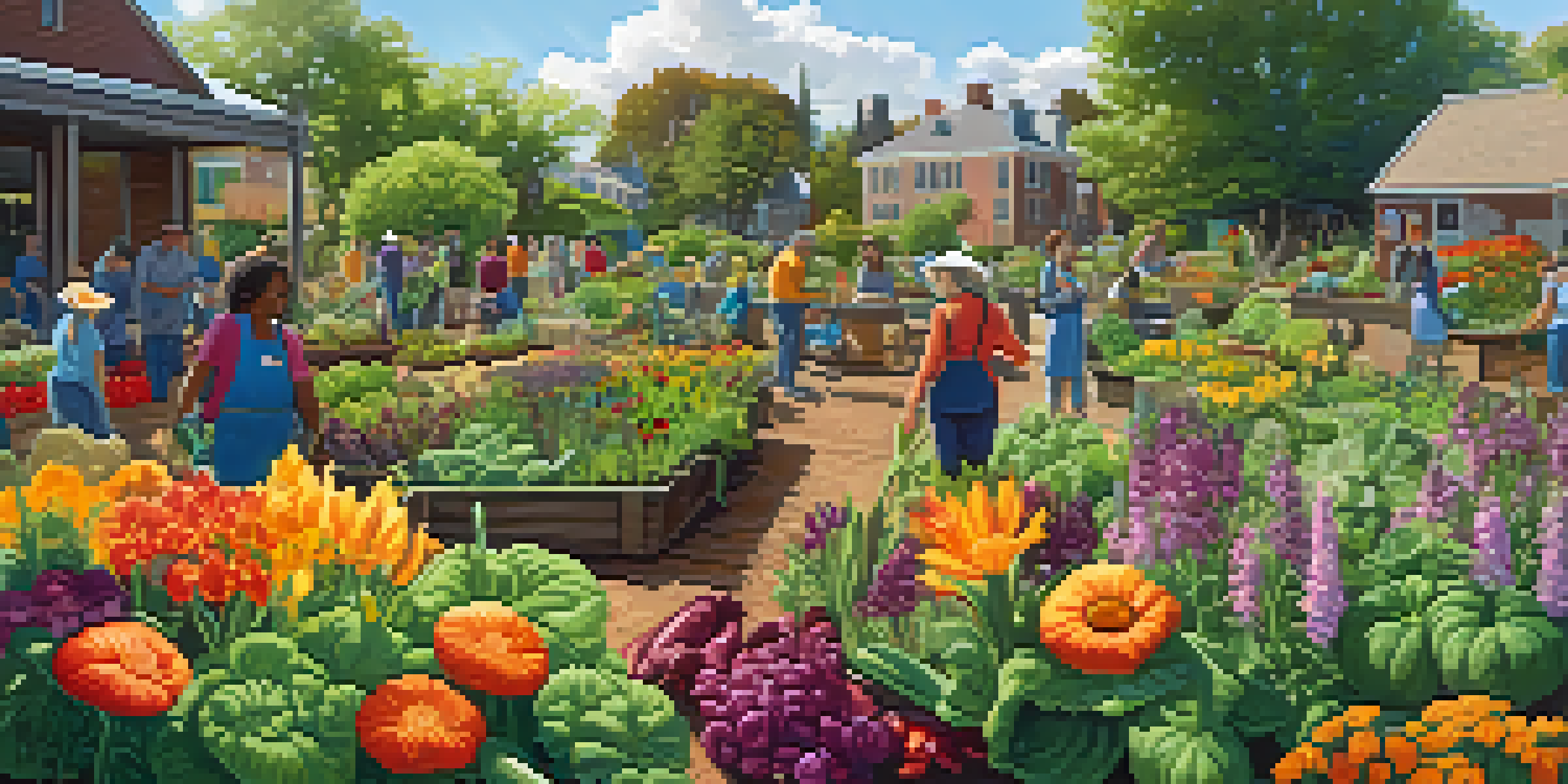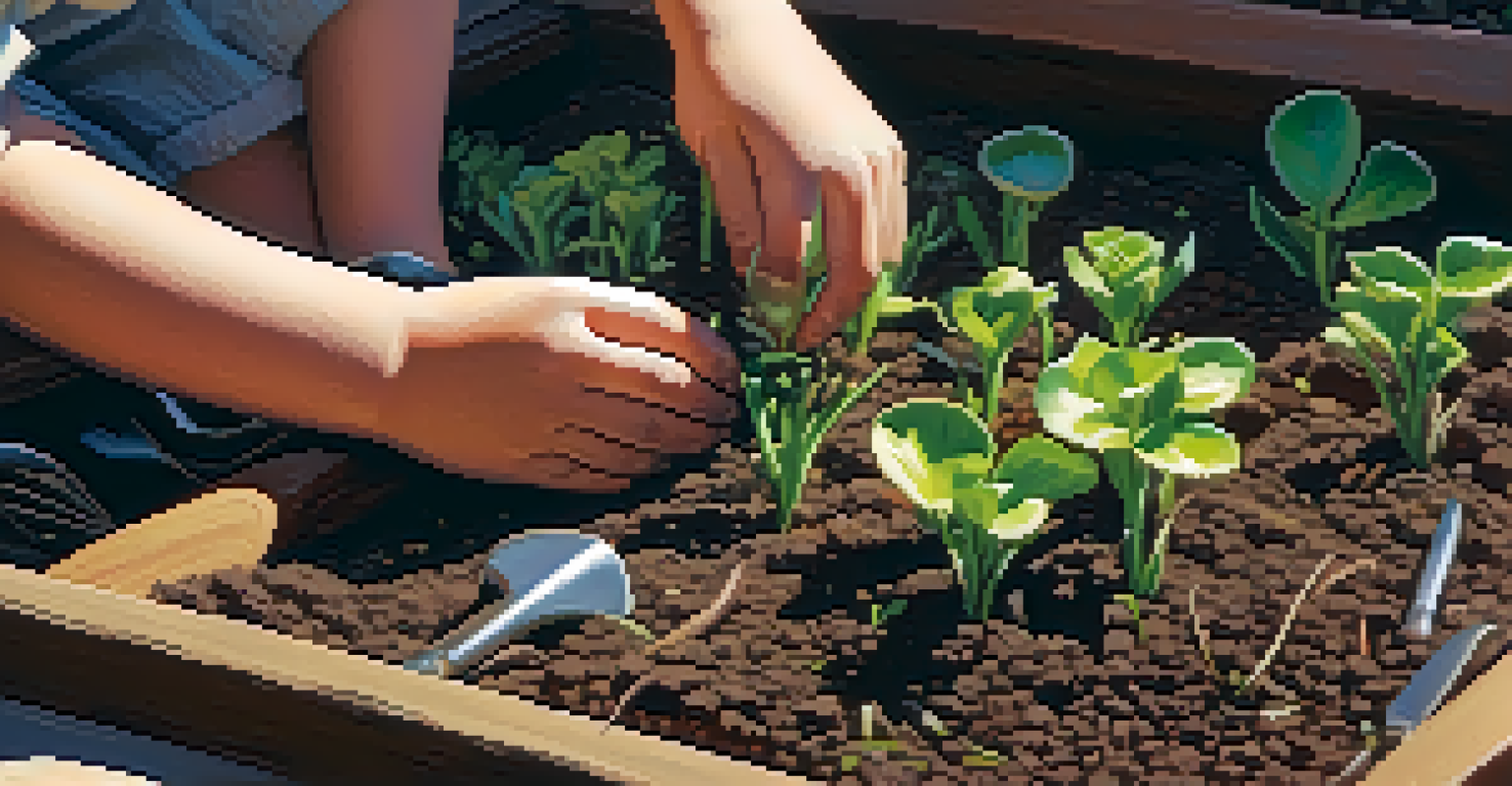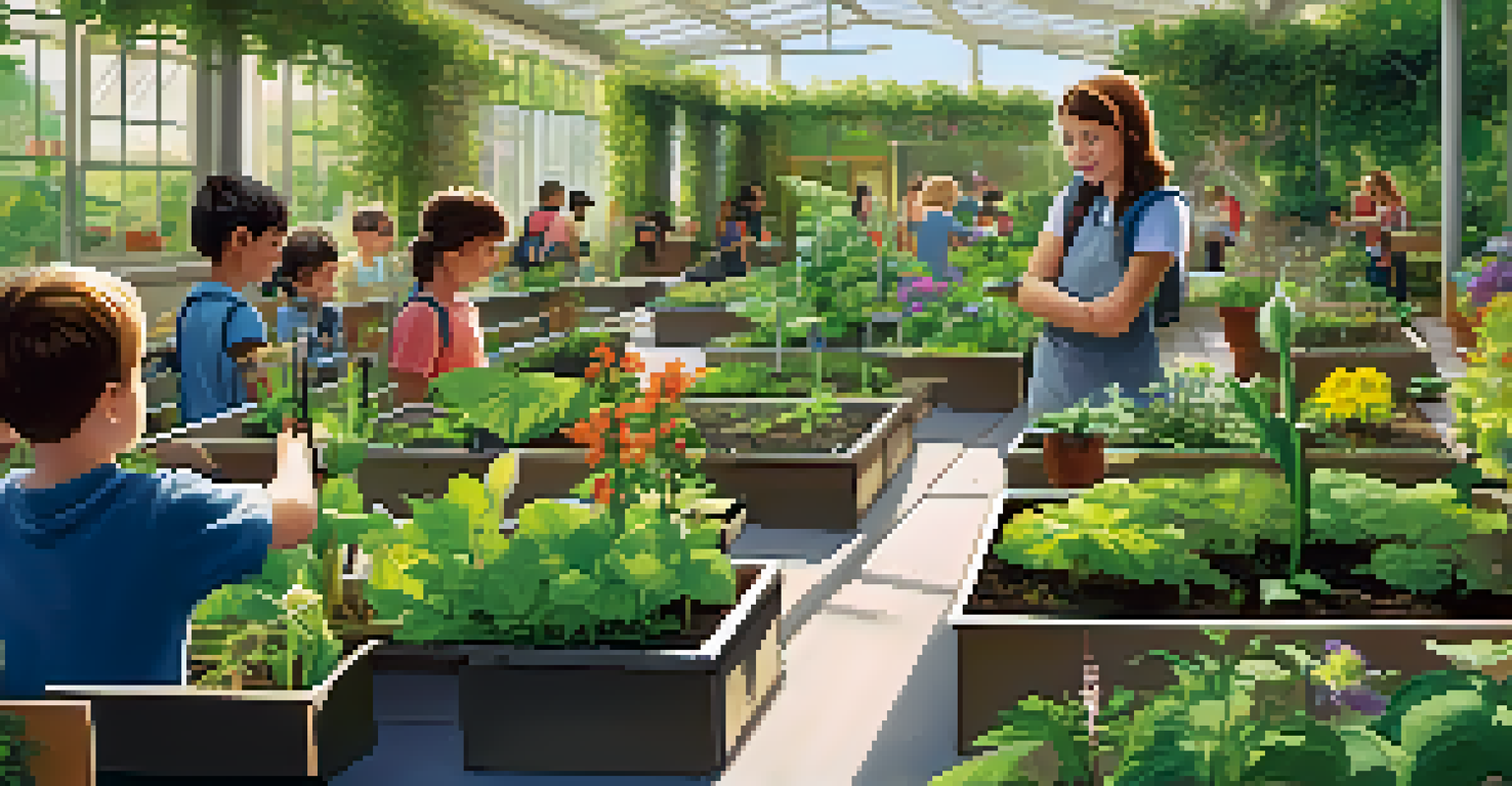Gardening as a Tool for Environmental Education

Understanding Gardening's Role in Environmental Awareness
Gardening serves as a hands-on approach to learning about the environment. By getting their hands dirty, individuals, particularly children, can develop a personal connection with nature. This tactile experience fosters appreciation and understanding of ecosystems, biodiversity, and the importance of conservation.
To plant a garden is to believe in tomorrow.
As plants grow, they illustrate vital ecological concepts such as photosynthesis and the water cycle. Children and adults alike witness firsthand how living organisms interact within their environment. This kind of experiential learning is often more impactful than traditional classroom education, making complex ideas much simpler to grasp.
Moreover, gardening encourages curiosity about the natural world. Questions arise about plant growth, soil health, and the role of insects. This inquisitiveness can lead to deeper research and understanding, empowering individuals to become more informed and responsible environmental stewards.
Promoting Sustainable Practices Through Gardening
Gardening provides an excellent platform to teach sustainable practices. By engaging in activities such as composting and organic gardening, individuals learn to reduce waste and minimize their environmental footprint. These practices highlight the importance of sustainability in daily life and how small changes can lead to significant impacts.

For instance, composting kitchen scraps and yard waste not only reduces landfill waste but also enriches soil health. This cycle of recycling promotes a greater understanding of resource management. When people see the benefits of sustainable gardening, they are more likely to adopt these habits in other areas of their lives.
Gardening Enhances Environmental Awareness
Engaging in gardening fosters a hands-on connection with nature, leading to a deeper understanding of ecosystems and conservation.
Additionally, gardening can spark discussions about local ecosystems and biodiversity. By choosing native plants, individuals learn about their local environment and the importance of supporting local wildlife. This encourages a deeper respect for nature and a commitment to protecting it.
Encouraging Community Engagement Through Gardening
Community gardens can serve as powerful tools for environmental education and social cohesion. They bring together individuals from diverse backgrounds, fostering a sense of belonging and collaboration. Working together in a garden enhances community ties while simultaneously educating participants about sustainable practices.
The best time to plant a tree was twenty years ago. The second best time is now.
As community members plant, tend, and harvest, they share knowledge and techniques, creating a rich learning environment. This collective effort not only yields fresh produce but also cultivates friendships and shared experiences. These social interactions can lead to a greater collective commitment to environmental stewardship.
Moreover, community gardens can become educational hubs, hosting workshops and events focused on environmental issues. These gatherings create opportunities for discussion and action, empowering community members to adopt greener practices in their daily lives. Ultimately, gardening unites people while teaching them the importance of caring for our planet.
Gardening as a Catalyst for Critical Thinking Skills
Engaging with gardening fosters critical thinking skills in both children and adults. When faced with challenges such as pest control or unexpected weather conditions, gardeners must assess the situation and make informed decisions. This problem-solving process encourages individuals to think creatively and adaptively.
For example, if a plant is not thriving, a gardener may consider various factors such as sunlight, water, and soil quality. This analytical approach not only applies to gardening but also translates to other life situations where critical thinking is essential. Such skills are invaluable in our rapidly changing world.
Promotes Sustainable Practices
Through activities like composting and organic gardening, individuals learn to reduce waste and embrace sustainable habits.
Additionally, gardening can inspire discussions about environmental challenges like climate change and food security. These conversations prompt individuals to think about their role in addressing these issues. By cultivating critical thinking through gardening, we equip ourselves to tackle broader environmental concerns.
Connecting Gardening with Science and Technology
Gardening naturally intersects with various scientific disciplines, making it an engaging way to teach science. From biology to chemistry, gardening provides real-world applications for scientific concepts. Students can explore plant anatomy, soil composition, and even the chemistry of fertilizers as they tend to their gardens.
Moreover, technology plays an increasingly vital role in modern gardening. Tools like soil sensors and gardening apps can enhance the learning experience, allowing individuals to track growth patterns and soil health. These technological advancements can spark interest in STEM fields, making gardening a multifaceted educational tool.
By integrating science and technology into gardening, educators can create a dynamic learning environment. This approach not only makes science more accessible but also highlights its relevance in everyday life. Ultimately, gardening can inspire the next generation of scientists and innovators.
Fostering Emotional Well-being Through Gardening
Gardening offers more than just environmental education; it also promotes emotional well-being. Spending time outdoors and engaging with nature has proven psychological benefits. The act of nurturing plants can provide a sense of purpose and satisfaction, boosting overall mental health.
Research shows that gardening can reduce stress and anxiety while enhancing mood. The repetitive tasks involved in gardening can be meditative, allowing individuals to unwind and connect with the present moment. This therapeutic aspect of gardening makes it an appealing activity for people of all ages.
Fosters Community and Learning
Community gardens encourage collaboration and knowledge sharing, strengthening social bonds while educating participants about environmental issues.
Additionally, gardening can foster a sense of community and belonging, which is crucial for emotional health. Working alongside others in a garden promotes social interactions and support networks. This emotional connection to gardening enhances its role as a tool for environmental education and well-being.
Incorporating Gardening into Educational Curricula
Integrating gardening into educational curricula can enrich the learning experience for students. Schools can create garden programs that align with various subjects, from science to art, allowing students to explore different aspects of gardening. This interdisciplinary approach encourages engagement and enthusiasm for learning.
For instance, a science class could focus on plant biology, while an art class might involve creating garden-themed artwork. This connection between subjects not only makes learning more enjoyable but also highlights the interconnectedness of knowledge. Students can see how gardening relates to their studies in a tangible way.

Furthermore, school gardens can serve as outdoor classrooms, providing experiential learning opportunities. Hands-on activities in the garden can reinforce concepts taught in the classroom, making education more relevant and applicable. By incorporating gardening into curricula, educators can inspire a generation of environmentally conscious individuals.